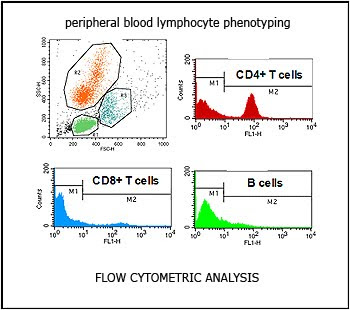I'm not sure why I'm expounding on my favorite grocery store. Because I can, I suppose. Anyway, I had aspirations of baking my own ham (for two people) and all sorts of fanciness, then went to the store, saw they had some cheap awesome looking precooked and figured making potato salad and asparagus is enough cooking for a holiday I really only celebrate to score Cadbury eggs.
Speaking of cooking, I literally can't remember the last time I got take out or fast food. That doesn't mean I'm eating healthy or anything (since I learned how to make cupcakes out of alcohol), but it's a huge financial boon, so I took all that newly uneaten money to buy clothes-that-are-not-scrubs because new month new rotation. Since I don't have creepy crawlies, bowel contents, and blood (weirdly) to contend with, I no longer have an excuse to spend all day in my pajamas. Yes hemepath, a field oddly lacking in fresh blood.
See, I took it from grocery stores back to medicine. I'm a jedi. I'm in hematopathology now, which is a field that's in my "maybe I'll do that when I grow up" box without the financial apocalypse that is forensic pathology, which is also interesting, but does not promise to pay off my loans. Also, I hate courtrooms, and considering I just had to rush out to go shopping due to being in another flavor of path, I definitely don't want a closet full of jury fodder to worry about.
ANYway, I initially developed a crush on hemepath when I did pediatric hematology/oncology as my pediatric elective.
For the uninitiated, hematopathology deals with blood (duh) and has a pretty large focus on leukemias, lymphomas, and hemoglobinopathies (like sickle cell), though the former two much more than the latter. Hemepath is much more diagnostic contrasted to blood bank which deals more with obtaining and matching blood, though I actually like both.
Essentially, in hemepath, someone comes in with a blood problem, and we do science at it until we arrive at an answer. We also evaluate treatment, so if someone's been on chemo for a while and their bone marrow is still packed with evil, that's bad. Other stuff. We mostly look at peripheral blood, bone marrow aspirates, bone marrow biopsies, and lymph nodes if they are suspicious for lymphoma. If there are weird blood cells in other body fluids like cerebrospinal fluid or belly juice (usually cytology's turf), we look at that too.
Blood is tricky, because while it may be kind of obvious about being "BAD" or "probably not bad", the different categories of badness look very similar, and knowing whether you have promyelocytic leukemia versus lymphoblastic leukemia versus etc is extremely important for treatment, so we do all sorts of voodoo to these cells and get way more money allocated to play with them. This is in contrast to autopsy where you do not order special stains EVER. "What kind of cancer did they die of? Fatal cancer. Next case."
I'll take a minute to sideline on a couple perception pet peeves here. Cancer is a fantastically expensive set of diseases. It's not anyone's fault. I'd love to blame drug companies and corrupt doctors and government, but cancers are extremely specific self made little assholes, and it takes thousands of hours of manpower and chemical warfare to get into it. A whole spectrum of specialists needs to find out what it is, where it came from, what broke, and then either a magic bullet for it (there are a couple of cancer types that produce a specifically combined gene product that doesn't normally occur and we can target it and kill the cells that make it, but that's unfortunately not many of them) or the specific combination of horrible chemicals that will target the cancer first. A lot of promise in treatment is coming along the way of the understanding of the genome but things like targeted antibodies and the whole new wave thing is outrageously expensive.
I say this to make two points. One. No one can privately afford this. I'm glad that back in someone's grandpa's day, health care was simple and affordable, but if grandpa's sister got leukemia, she'd have died. Two, anyone that says "Sure, we can _____________, but we can't cure cancer!" needs to shut up. Seriously, anything they have to say after that is irrelevant. Most things that can be murdered with a single inexpensive drug (looking at you, syphilis) have been.
I'll also bring up another point, more as an education thing. Since cancer is *not* one disease, approach to treatment is extremely specialized, so anyone thinking "If I got diagnosed with cancer, I wouldn't go through ______", not a good way to look at it. There are pediatric leukemias that have an 80-90% ten year survival rate. The kids lose all their hair, turn white, look like death, get scary pneumonias where they're on a ventilator and you're absolutely certain they're done, and two years later, boom. Hair back, rallied, good grades in school, no cancer. Breast cancer? Runs everything from "not a big deal" to "death sentence". If you ever get cancer, talk extensively with your doctor, look up articles, etc. Also, don't wait because you don't want to deal with it or you don't have the money. Often the only difference between outpatient surgery and stage four metastatic disease is time. Keep in mind, I am *not* saying cling onto the promise of life by your fingernails in the face of everything or that I should manage your individual situation. Believe me, I have a list of cancers and progressive diseases that are in my "Give up and run up all my credit cards in Thailand" category, but I'll be damned if "breast lump" will be one of them.
And please listen to your doctors once you have a diagnosis. If you don't like yours, get a new one, but absolutely consult people with peer reviewed literature on their side *before* and possibly as an adjunct to the other stuff you try. As far as all natural goes, cancer is all natural, which is why you really have to go unnatural to kill it. Lest you think I'm MD patronizing all of you, my grandfather died because of prostate cancer that remained quite treatable until quite late, thus leaving me at 13 with *no* grandparents (last man standing) so it's a topic I care about.
But soapbox off. Where was I? Oh yes, the battery of heme tests. For the most part, heme feels approachable, memorizable. There are nuances to the cells I'm learning to appreciate on morphology, but a lot of it is memorizing which markers correspond to which cells and which markers are likely to go screwy first when the cells they're sitting on go bad.
Unfortunately, one test they run is flow cytometry. Part of tomorrow is going to be spent trying to make heads or tails of it. It's super duper important, and unfortunately, looks like this:
Yeah. When I encountered flow on my first day, a little avatar-Ishie from college calculus popped up, had a seizure, and dropped dead. Lest you think that little graph up there could be comprehended, most flows are about six-ten pages of that run against different parameters and cluster differentiations. So the heme path fellow is flipping through it realllly quickly considering it's full of math and says something to the effect of:
"Okay, it does look like we're dealing with an M4 type acute myelogenous leukemia."
Noooo... it doesn't look anything like acute myelogenous leukemia. AML looks like this:
Whereas that looks like this:
But I'm going to try to get it, so I can pwn hemepath and show it the love I think it deserves.
In the meantime, as your Easter/Game of Thrones Episode 2 present, here's Joffrey getting slapped.





No comments:
Post a Comment